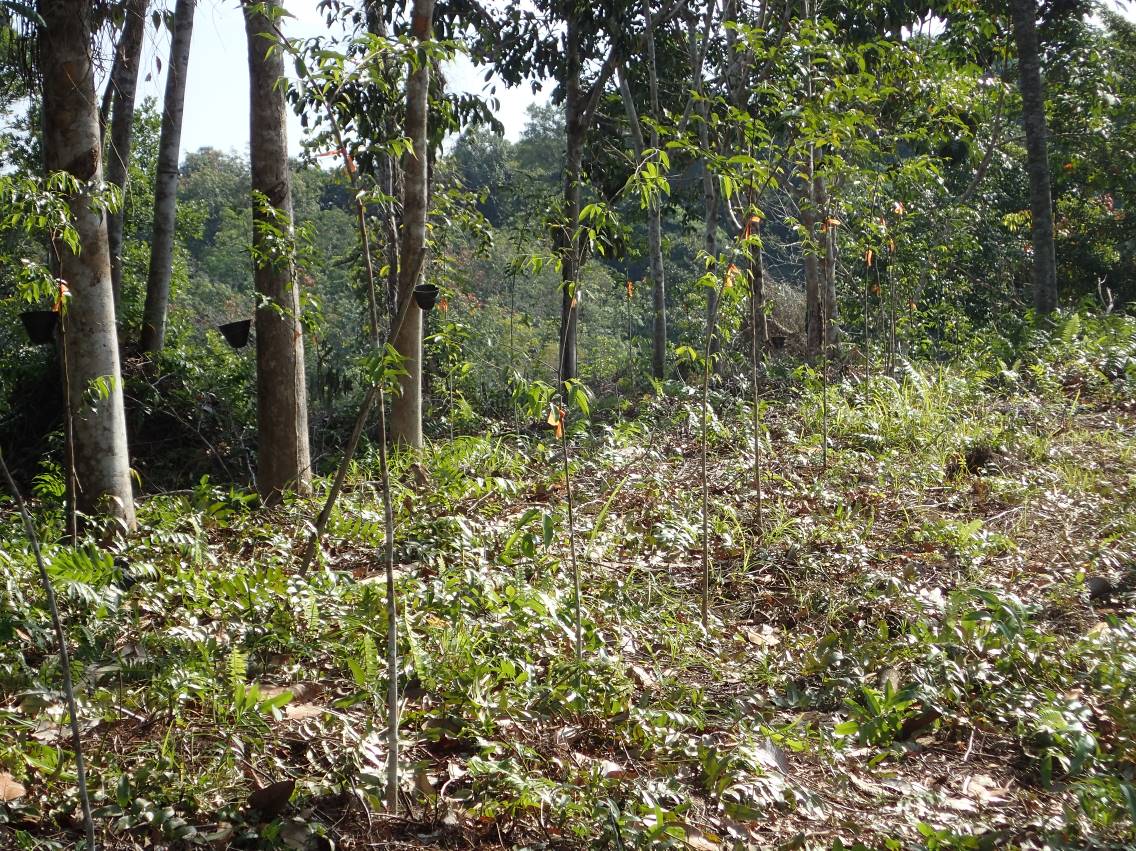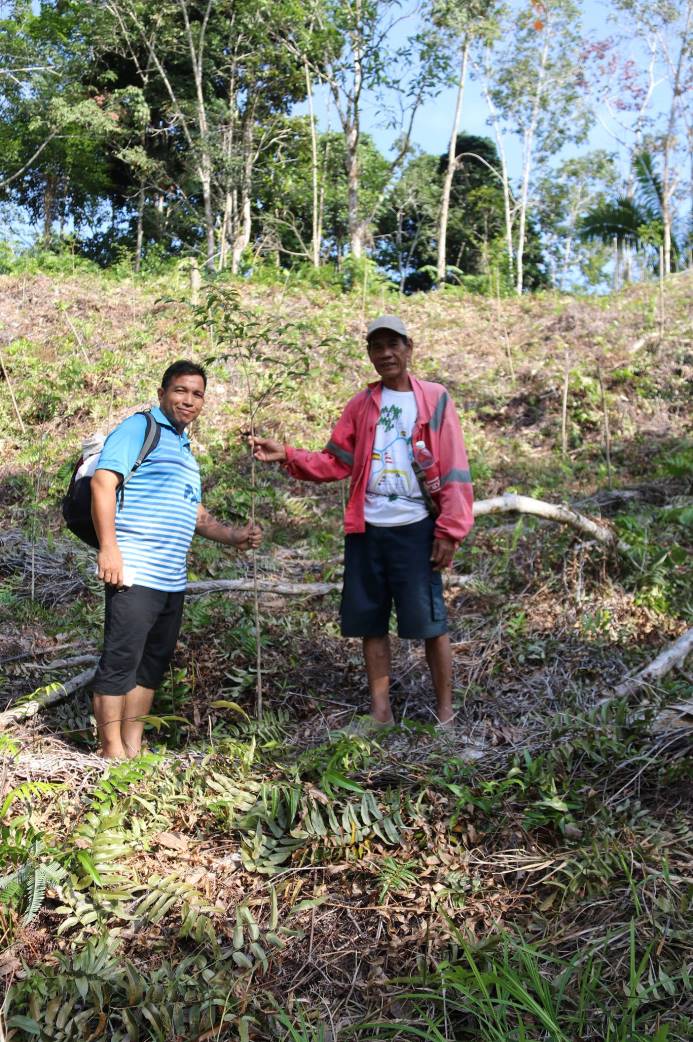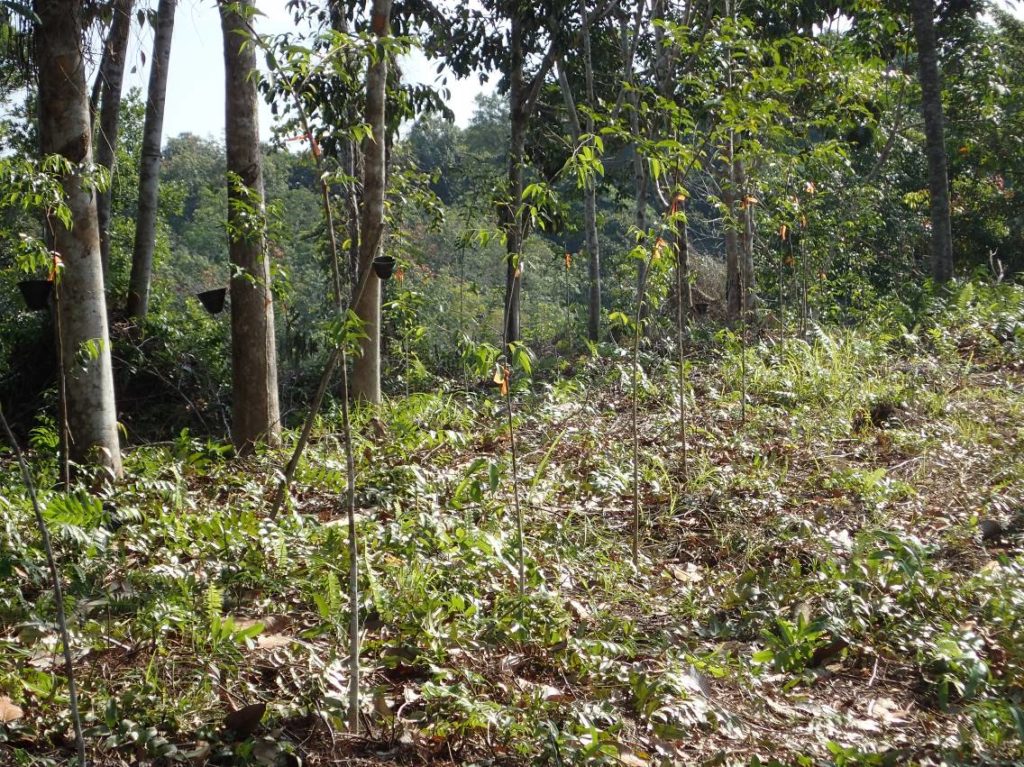A new green industry
The Heart of Borneo (HoB) Green Economy project aims to pilot emerging industries that may develop green economies for the HoB. WWF Malaysia recently travelled to Rumah Manggat with the Forest Department Sarawak (FDS), to investigate whether the local community are interested in developing a unique Gaharu plantation. Aquilaria malaccensis is a native tree to the HoB, which has traditionally been harvested for Gaharu – a fragrant wood. Local communities in the region have started to replace the traditional wild harvest of Gaharu with Aquilaria plantations, which can be harvested once the trees can produce Gaharu (it normally takes around seven years).
In partnership with the FDS, the local Rumah Manggat community developed a Gaharu tree plantation in 2016. The plantation is intermixed with other commercial species, such as rubber, and is currently being managed for Gaharu production.


WWF Malaysia met with the Rumah Manggat community leaders to discuss developing a new plantation, which involves managing the plantation for tea production rather than Gaharu production. The leaves of the Aquilaria tree have been found to have health benefits, and medicinal properties, which are in high demand from both local and international markets. The alternative plantation will allow the trees to mature and be harvested in a sustainable way, rather than trees being cut down once they can produce Gaharu. WWF Malaysia hopes that the pilot plantation can demonstrate that Aquilaria tea can provide a competitive economic alternative to Gaharu, rubber or oil palm.

The proposed plantation would be established on areas that have been disturbed by the shifting cultivation methods currently used by the local community. The Rumah Manggat village is surrounded by productive agricultural land that has already been disturbed by generations of shifting cultivation. The proposed plantation is designed to create a more permanent industry, which can reduce the environmental impacts associated with shifting cultivation.



